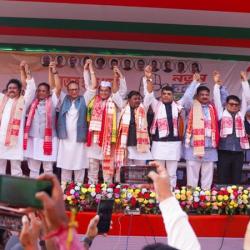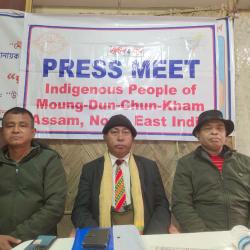
Dr Rahul Pandey The recently concluded G8 summit in Japan placed rising fuel and food prices, besides climate change, at the top of its agenda. While fuel crisis is enough to stoke panic, it has also partly induced the food crisis due to both high fuel cost of producing and transporting food as well vast bio-fuel cultivation in the West. With unabatedly rising price of oil and uncertainty about its reserves, energy security is today every nation's concern.
This also reflects in the desperation with which the Indian government is pushing ahead nuclear deal with the US. These developments raise some critical questions:
- Can energy policy deliver both energy security and climate change mitigation goals?
- Is nuclear energy the main alternative to fossil fuels? How competitive can renewable energy options become?
- Can the poor have access to modern energy services?
Here I attempt to answer these questions for India in light of current and prospective international trends in technologies, investments and policy. The general arguments hold good also for other countries facing similar uncertain energy future.
We are today in a historical phase in which major global trends in economy, technology, fuel, and environment are showing an interesting convergence. New styles of businesses have made customer responsiveness very important for suppliers and service providers. This means efficient supply chain-wide delivery, rather than just a single link like production, is strategically critical. Greater investments are being pumped in development of technologies that are smaller scale and mass-assembled rather than large scale and centrally installed. Fossil fuels are becoming scarcer. The concerns of climate change globally and of domestic pollutions in developing countries have never been more severe. All these trends are reinforcing each other and driving a radical shift in economics of several industries. Let us look at what they foretell for energy. In the remaining paragraphs I will first lay out the goals of energy policy, then review global trends of energy technologies and fuels, and finally outline the desired policy for India.
The right energy policy for a nation must aim to satisfy energy needs of current and future generations of all citizens in an affordable manner without adverse impact on the environment. As explained earlier, in today's world, mere domestic availability of a particular fuel may not ensure access of modern energy services to all. A nation requires a range of resources in the entire energy supply chains -- primary energy, financial capital, material and human capabilities for development and manufacture of relevant technological systems, and logistical infrastructure for delivery -- to make available useful energy to its citizens at affordable costs over a long period of time.
Bright prospects are lurking globally for renewable energy as centralized conventional technologies are declining, natural gas faces uncertainty beyond the next 2-3 decades, and environmental concerns are intensifying. Prominent EU countries and Japan have already begun serious initiatives to transition to low-carbon society by 2050 for which the state is providing support to large scale development and commercialization of renewable energy technologies. Thanks to rapid increase in R&D investments and installed cumulative capacity globally, renewable energy systems based on wind, solar and biomass are witnessing high learning rates as reflected in progress ratios of 70-90% (implying 10-30% fall in capital costs for every doubling of capacity). As most of these systems are viable at small scale, they hold promise also for the rural and remote regions of developing countries where majority of the poor live. It is clear that the countries who are making serious investment in technological and delivery infrastructure aspects of such options now will gain distinct advantage in the future. They will be able to deliver cheaper and cleaner energy to their people.
On the other hand, conventional large-scale options based on coal, nuclear and large hydro are facing declining trends and saturating costs. For instance, over the past two decades share of coal in electricity generation markets of North America, Europe and former USSR has eroded by 20-40% in favour of natural gas and, to some extent, renewables. Similar erosion has happened to big dams as they have imposed severe costs on local communities and environment everywhere. As for the nuclear power, its poor cost competitiveness has been demonstrated in the case of Indian heavy water reactors. No new nuclear power capacity has been installed in the US for the past three decades owing mainly to unresolved problems of nuclear waste handling and high costs. This is despite the billions of dollars received as subsidy through the Price Anderson Act. Given the high capital intensity and long life of nuclear power plants, India (or any other country) will be locking itself to huge resource commitments for the future if it pushes ahead with its ongoing nuclear enthusiasm. Needless to say, these commitments will deter us from exploring superior alternatives.
Clean coal technologies are being explored as cleaner alternatives, but their high capital cost and longer term uncertainty of coal reserves make them a candidate for temporary solution alone. Same goes for natural gas based options that have low capital cost but suffer from uncertain future gas prices. Fuel cell, run on hydrogen produced from natural gas and other alternatives, is likely to emerge as a competitive option in both transport and power sectors. Like renewable energy systems, they too will be viable at small, decentralized scale.
In the final analysis, energy policy aimed at long term affordability, clean environment, sustainability and security must be centered on a wide mix of renewable energy options -- solar, wind, small-hydel, biomass and others. Wide mix of renewables is necessary to ensure reliability of supplies and avoid possible fallout of dependence on single option like biofuels.
Therefore, to begin with, India must change its energy strategy towards one that places the highest priority on renewable energy by committing huge resources for up-scaling infrastructure for manufacture and supply of technologies for production of electricity, heat and other end-use energy from solar, wind, biomass and small-hydel resources. In addition, state support must be provided to build dispersed infrastructure in rural areas for delivery and maintenance of these systems. Systems based on clean coal and natural gas, given their current domestic availability and low capital cost respectively, can play stopgap role in the transitory phase until delivery infrastructure based on renewables is put in place.
In addition to changing energy supply mix, drastic end-use and life-style changes that cut down energy use will be necessary. Examples are: new urban planning with homes closer to offices, excess public transport capacities, and promotion of local markets and local materials to avoid long distance transport. But these changes cannot come by market economics alone. Governments need to intervene now to make them economically attractive in the future.
[The author is a former faculty member of Indian Institute of Technology (IIT) Bombay and Indian Institute of Management (IIM) Lucknow, and is currently a member of a start up venture that develops mathematical models for planning and policy analysis. His doctoral and post-doctoral research work was related to energy and environment policy and climate change. He can be contacted at rahulanjula@gmail.com ]
- 12229 reads










Add new comment